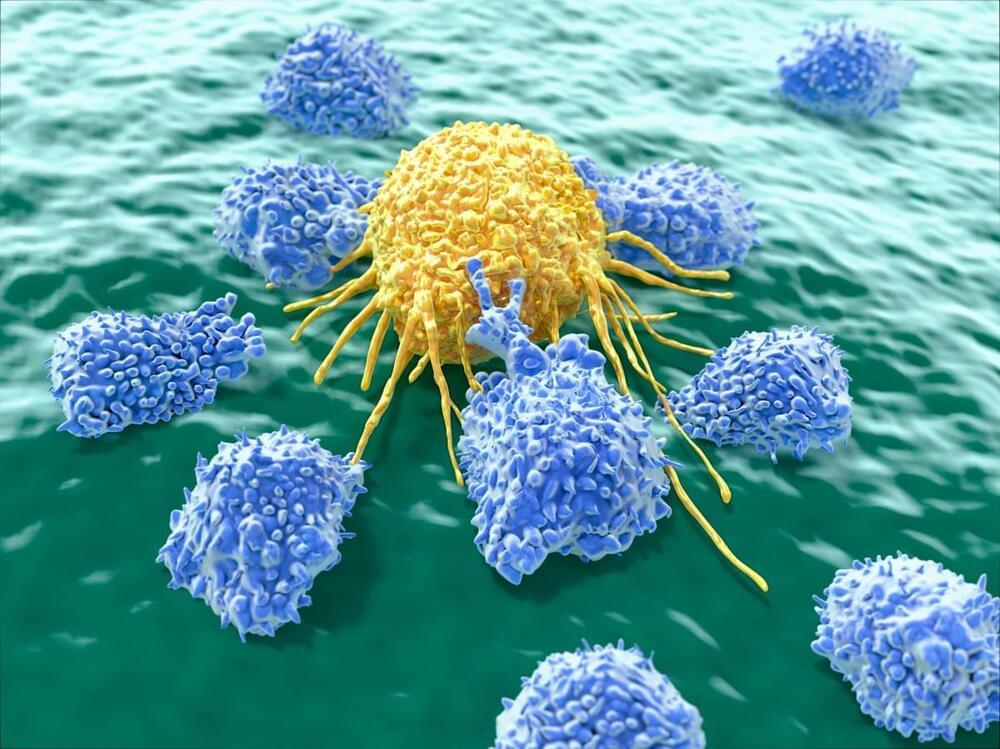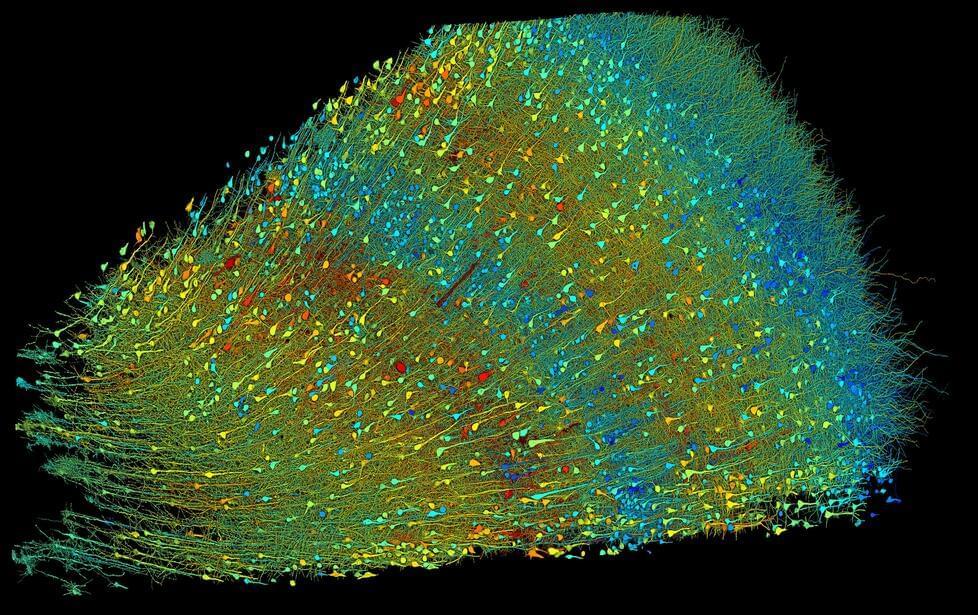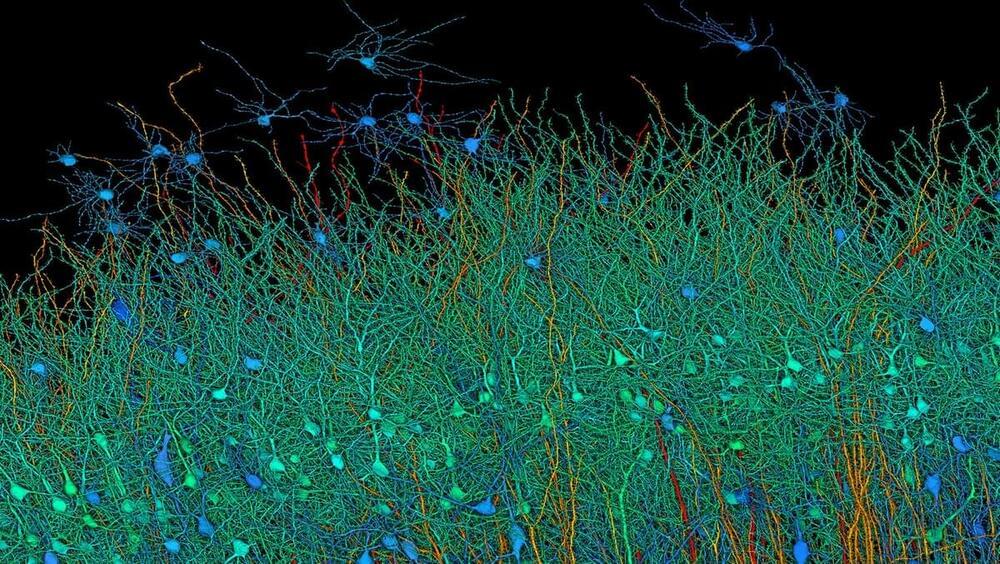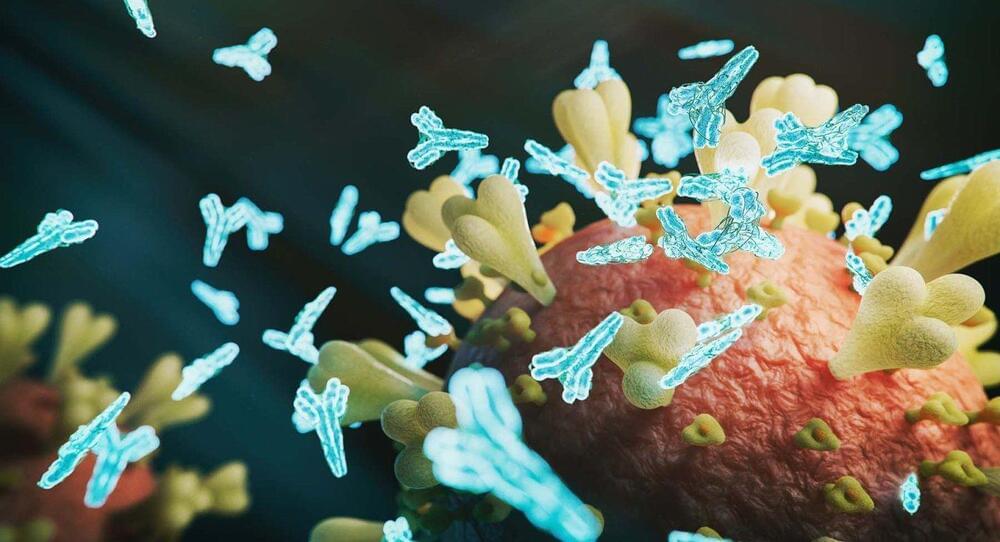Unlike CAR-T-cell therapy, experimental CAR-NK treatments could potentially be used off-the-shelf against many cancers. But finding the right source of NK cells is vital.




Researchers have made a digital map showing a tiny chunk of a human brain in unprecedented detail.
Based on a brain tissue sample that had been surgically removed from a person, the map represents a cubic millimeter of brain—an area about half the size of a grain of rice. But even that tiny segment is overflowing with 1.4 million gigabytes of information—containing about 57,000 cells, 230 millimeters of blood vessels and 150 million synapses, the connections between neurons.
The researchers published their findings in the journal Science on Friday. They have made the data set freely available online and provided tools for analyzing and proofreading it.

A collaborative research team from NIMS and Tokyo University of Science has successfully developed a cutting-edge artificial intelligence (AI) device that executes brain-like information processing through few-molecule reservoir computing. This innovation utilizes the molecular vibrations of a select number of organic molecules. By applying this device for the blood glucose level prediction in patients with diabetes, it has significantly outperformed existing AI devices in terms of prediction accuracy.
With the expansion of machine learning applications in various industries, there’s an escalating demand for AI devices that are not only highly computational but also feature low-power consumption and miniaturization. Research has shifted towards physical reservoir computing, leveraging physical phenomena presented by materials and devices for neural information processing. One challenge that remains is the relatively large size of the existing materials and devices.


ALGORITHMS THAT DECODE IMAGES A PERSON SEES OR IMAGINES will enable visual representations of dreams a sleeper is having, and give deeper insights into emotionally disturbed or mentally ill patients.
Go to a href= https://brilliant.org/coldfusion

In a discovery that could hasten treatment for patients with multiple sclerosis (MS), UC San Francisco scientists have discovered a harbinger in the blood of some people who later went on to develop the disease.
In about 1 in 10 cases of MS, the body begins producing a distinctive set of antibodies against its own proteins years before symptoms emerge. These autoantibodies appear to bind to both human cells and common pathogens, possibly explaining the immune attacks on the brain and spinal cord that are the hallmark of MS.
The findings were published in Nature Medicine on April 19.
Join us on Patreon! https://www.patreon.com/MichaelLustgartenPhDDiscount Links: Epigenetic, Telomere Testing: https://trudiagnostic.com/?irclickid=U-s3Ii2r7x…


Sometimes when you’re considering how to bring the power of AI to a clinical context, it sort of takes a new way of thinking to get inspired about what’s possible.
I was thinking about this the other day, inspired by some people who have been working hard on genomics, oncology research, and other types of biological and anatomical applications. There’s so much of it, suddenly, especially at these institutions that I’m so close to – to call it a “revolution” in my view, isn’t hyperbolic.